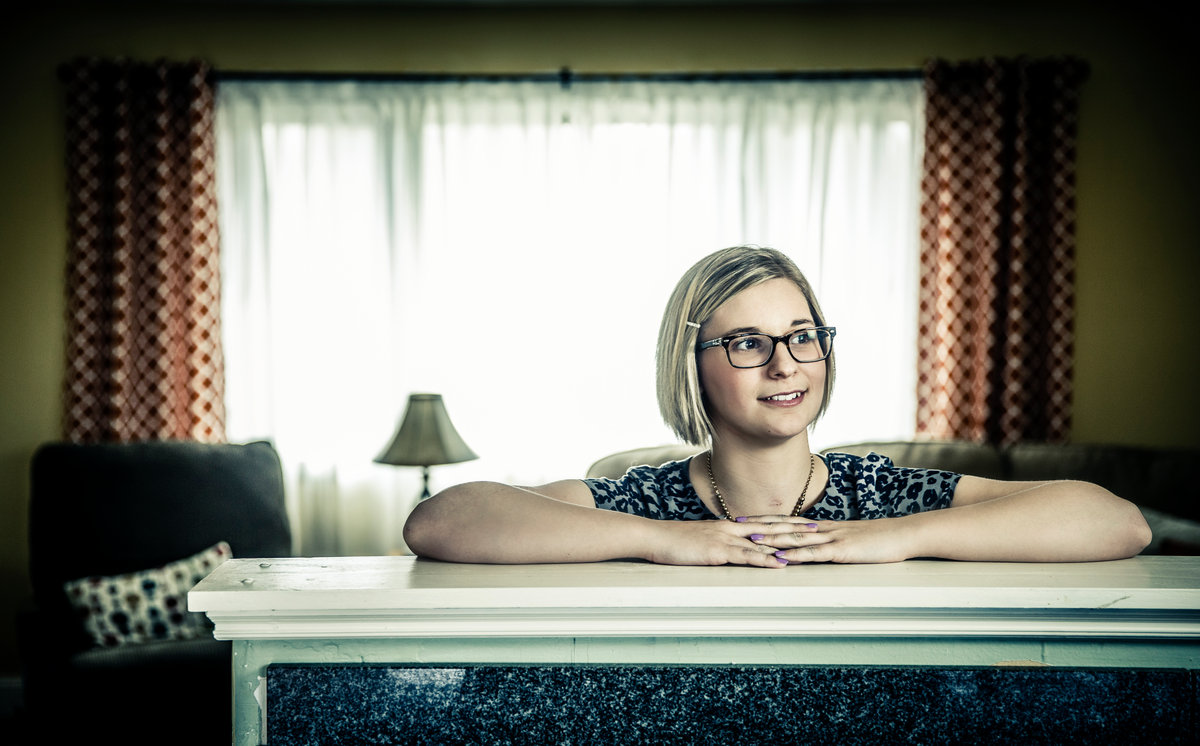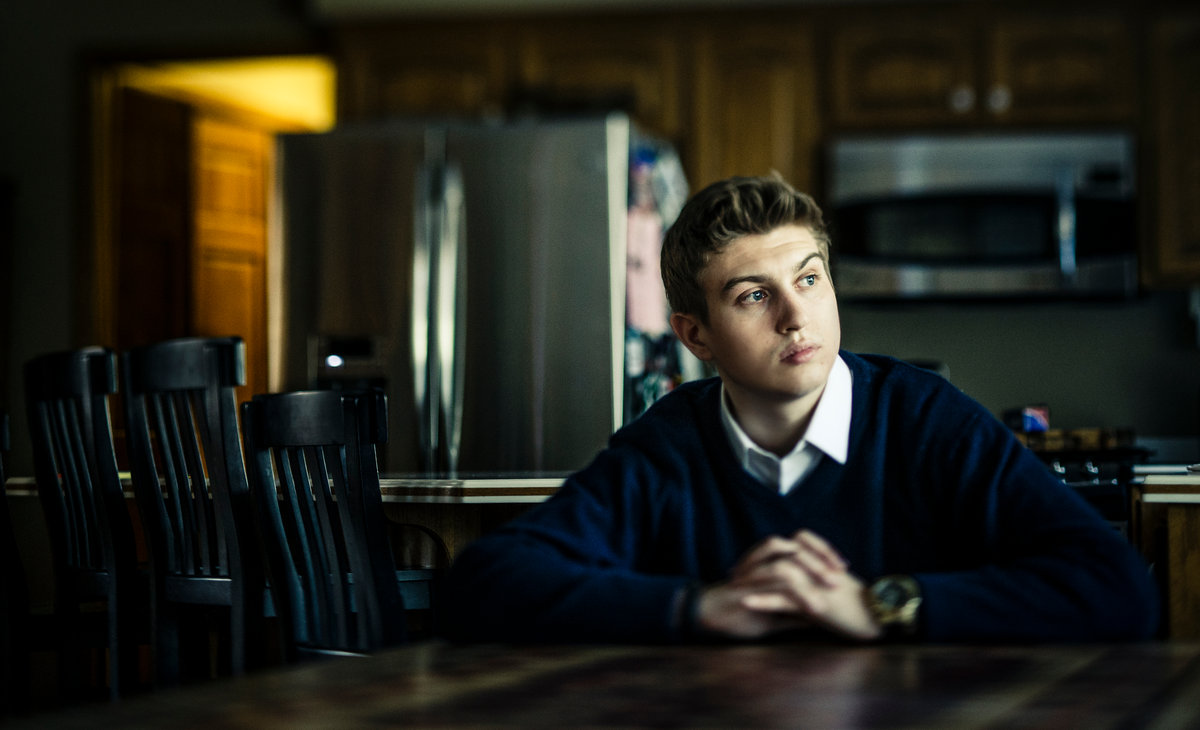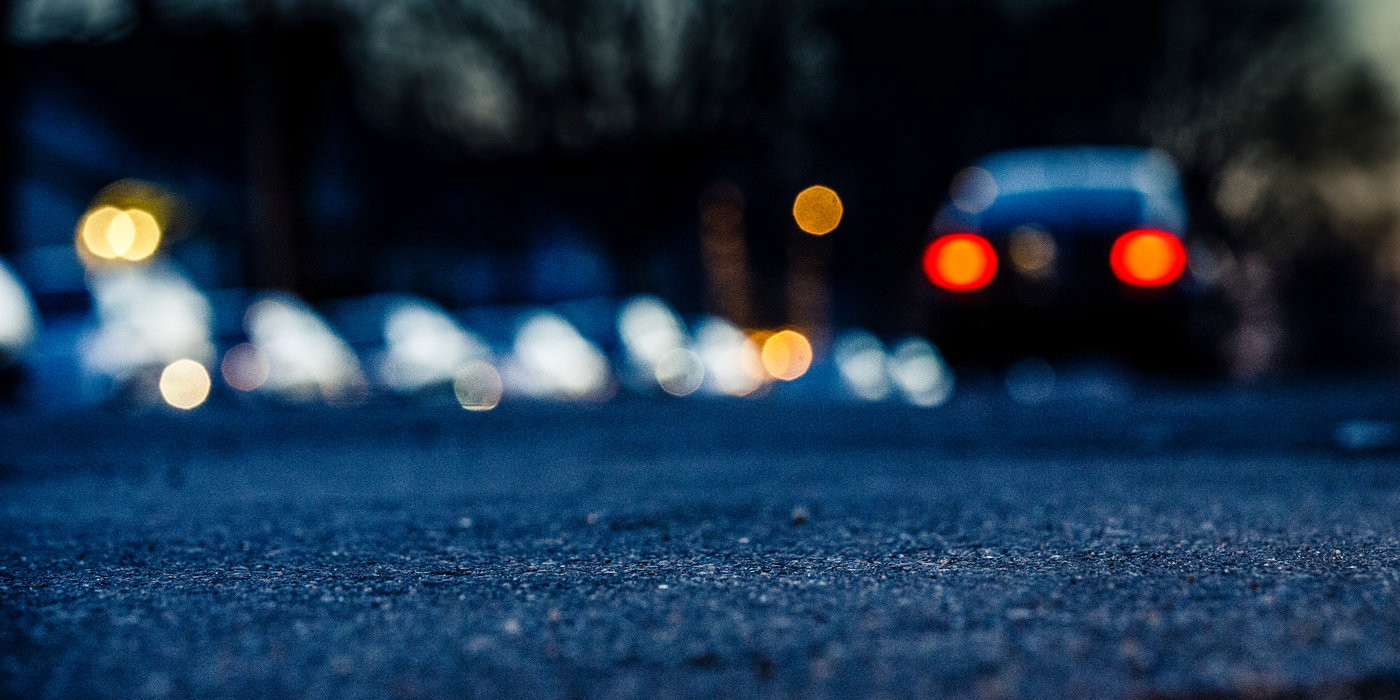The air was cold and quiet in the early morning hours of Nov. 24, 2013, perhaps an omen of the winter yet to come.
In the darkness – at about 2:30 a.m. – five friends stepped from the taxi van that brought them back to St. Paul. Three friends crossed safely. Two did not.
In the solitude, there was a single, distinct sound registered first: “Smack!” Then, the revving of an engine.
Red taillights disappeared into the distance.
And two bodies splayed across the pavement in the place first responders would soon find them.
For then-St. Thomas seniors Nick Bergeland and Rebekka Peterson, that life-altering moment no longer exists. It is pieced together by their three friends who already had gotten out of the cab on the south side of Grand Avenue just east of campus, and crossed the street.
“Life can change so much in one given moment,” says India Bergeland, Nick’s sister and a junior at Purdue University.
This, then, is the story of that one given moment and the change it suddenly brought to these two lives. It also is the story of the moments since, and the ones still to come.
Pictures from the past
Sasha can’t take it. The presence of a visitor so close is too much for the 11-month-old collie to handle, and she leaps up from her commanded sitting position to smell the unfamiliar jeans again.
Rebekka (Bekka) smiles at the joy the newest member of the Peterson family brings.
Bekka’s right leg tucks beneath her body as she sits in her parents’ living room in Farmington, Minnesota, brown glasses framing her face. Straight blondish-brown hair falls to the base of her neck, a few strands covering part of the silver cross necklace that lays horizontally above her pink sweater.
No outward signs show Bekka is different from any other 23-year-old. Instead, all the characteristics friends and family always have known are the most apparent: She is friendly, easy to talk to, considerate of others, giving of herself and happy to be wherever she is.
“Do you want to see something really weird?” Bekka asks, eyes widening.
She pulls out her week-old cellphone, which days ago downloaded hundreds of pictures from her old phone that was destroyed more than a year ago. One particular photo she had never seen before. It was a picture her friend, Alex, had snapped while looking backward from the middle row of a taxi van. There’s Bekka, smiling as she sits next to her roommate, Grace Agbor; Grace’s boyfriend, Nick Bergeland; and his friend, Sam.
The photo was taken on the way back from the University of Minnesota campus. Minutes later, the five students got out on the south side of Grand Avenue between Cleveland and Prior avenues. Bekka doubled back to grab her leftovers from Tony’s Diner, and then she and Nick stepped onto the street moments behind the others.
What happened next is the subject of an investigation that still has no criminal charges, a convoluted series of contradicting statements woven throughout several arrests and police questionings. What’s clear is this: A silver Mazda 2 sedan struck both Bekka and Nick before speeding westbound, cutting through the parking lot of a SuperAmerica and then turning eastbound onto Summit Avenue. Several hours later the car – a rental – was reported stolen by the renter, and throughout the following days she gave conflicting accounts of her own whereabouts when the car was taken. Anonymous tips to police placed one woman behind the wheel, while another statement by a suspect pegs a different woman as the driver. Multiple accounts agree that three women were in the car at the time, and that alcohol was involved. The case remains open.
First responders found Nick and Bekka in horrible shape, severe external injuries coupled with unconsciousness and the clear potential of fatal head trauma. Those same responders later described to Bekka’s parents how they lifted her eyelids to find eyeballs pointed in different directions. They assumed, they said, they essentially were escorting two bodies to die.

Bekka Peterson
The unknown
Nick leans back from the kitchen table at his mother’s home in Wayzata, a sausage and egg sandwich temporarily left untouched as he ticks the injuries off on his fingers: traumatic brain injury, a broken scapula, a broken collarbone, two broken ribs. Like Bekka, he has zero recollection of the accident, the events that led up to it or the weeks into early 2014.
For family and friends, the memories of those days are all too real. The phone calls in the middle of the night and the rushing to Regions Hospital in St. Paul, where they found both Nick and Bekka in conditions that only could be described by doctors in the unknown: First, the unknown if they would survive, and, if they did, the unknown of how permanently damaged they would be.
With such serious brain trauma the first 48 to 72 hours were critical. Holes were drilled into Bekka’s skull to help relieve pressure on her brain. A tube was put into Nick’s head for the same purpose. Doctors cautioned the difficulty in any accurate prognosis on their mental outlook; despite all the advances in medicine to this point, the brain is such an incredibly complex organ that the results of traumatic disturbances like these are all but impossible to predict. It also was difficult to understand at that point, Nick’s mom, Denine, says, that despite being in the same accident, Nick and Bekka’s outcomes were going to be completely independent.
Urgent prayers
As Nick and Bekka remained in critical condition, two forces started to show themselves in powerful ways: community and God. Family and friends described an overwhelming outpouring of support from all corners of their lives: from relatives, friends, church members, strangers, Farmington and Wayzata neighbors, and the St. Thomas community.
“It made all the difference,” Denine says. “All the difference.”
A prayer service at St. Thomas three days after the accident brought hundreds of people together to raise their voices to God. Minutes before the service, doctors called Bekka’s father, Stacy, to inform him and his wife, Susan, that, despite Bekka being the first to regain consciousness, her brain was not responding well; she needed emergency surgery to remove a large portion of her skull to allow room for continued swelling. Prayers at St. Thomas took on even more urgent purpose.
Four-and-a-half hours later Bekka joined Nick in the immediate clear. Both were kept in induced comas for several more days to hold their brain activity at a minimum and help their bodies heal.
Father David Smith of St. Thomas prayed over the two students, and both Susan and Denine described events around his work with the word “miracle.”
Days after the accident Nick still hadn’t moved, but when Smith prayed over his entire body he moved for the first time.
“It was scary and confusing, but I felt really peaceful,” Denine says. “God worked through him in mysterious ways.”
Smith prayed over Bekka several times as well, and after one visit Susan described the release of a feeling that had been within her from the moment she first heard about the accident.
“People said, ‘This is the first time I’ve seen you smile,’” she says. “The bad feeling was just gone.”
Improvement
Bad feelings were dominant in the first days, as prognosis doubting survival gave way only to the potential for a permanent vegetative state. Slowly, slowly, small improvements came in fits and starts over the course of the next weeks. But all of those came under the shroud of the unknown, whether either of their brains would continue healing or leave them permanently incapacitated in some way, perhaps with the ability only to live in a group home for the remainder of their lives.
Still, family members, Bekka’s boyfriend, Martin, and Nick’s girlfriend, Grace, all described an optimism everyone clung to throughout.
“The doctors couldn’t really tell us anything, so we didn’t know if Bekka was going to be able to walk, talk, whether she would have the capacity of a 2-year-old or a normal person, or just some personality differences,” says Kaitlynn Smith, Bekka’s best friend. “We would have accepted anything for her.”
“All the hours I sat with Nick I never doubted that he would wake up,” Grace says. “I knew he was in there somewhere. To imagine any other possibility would have been unfathomable.”
Eventually Bekka and Nick were taken out of their respective comas but – despite their consciousness – both remained disheveled mentally. Bekka – with a fractured skull in four places and her face shattered back through her sinuses – couldn’t communicate except to say literally two words, “the thing,” and struggled to remember who people were and where she was.
Nick’s body grappled with crushing physical injuries (he lost more than 50 pounds in the hospital, Denine says) and – even now – he is unable to recall anything between the accident and New Year’s Day.
Both began rigorous physical, mental and speech therapy that carried them through their eventual releases from Regions on Jan. 10 for Bekka and Jan. 24 for Nick.
Soon afterward Nick embarked for Omaha and the Quality Living Inc. (QLI), a specialized center for brain and spinal cord injury rehabilitation where he would spend three months.
Bekka continued her own rehabilitation efforts in Minnesota.

Nick Bergeland
Humor and healing
At QLI, Nick underwent an intense process aimed at building his entire life back to where he wanted it to be. While there, he was surrounded by people dealing with similar issues, both physical and mental. It completely changed his perspective, he said, on what he was going through and what had happened.
“You meet some people who have had really terrible things happen and still maintain a sunny outlook on life,” he says. “It really makes you realize what you still have and to be thankful. I went through a hell of an accident, but I still have a lot to be thankful for.”
Nick’s life path coach, Jon Pearson, says Nick’s sense of humor helped him negotiate a tough road of rehabilitation. While he didn’t always want to be there and yearned to be home and “living a normal life,” Nick worked extremely hard and got the most out of his time there, Pearson says.
“It was very apparent to me that the only person who had anything to gain or lose out of this whole experience is me,” Nick says. “Why would I shortchange myself at a very crucial point in my life?”
Nick made remarkable progress at QLI as he worked through full-day schedules, which eventually included class at a local community college. On top of getting back to Minnesota and other normal parts of his life, Nick focused on returning to St. Thomas to complete his degree, a possibility that became more and more real as his full mental abilities returned.
99.99999 percent
As Bekka has undergone her own rigorous rehabilitation schedule and lived with her parents in Farmington, getting back to school has driven her efforts as well. Highlighting the unique nature of any brain injury, Bekka’s head trauma has manifested itself differently than Nick’s: He recently tested back at 100 percent of his cognitive ability pre-accident, while Bekka has longer-lingering effects, which means delaying a return to St. Thomas for the immediate future.
Any comparison aside, the pace of progress has been a point of frustration for Bekka as months continue to go by without returning fully to where she was. She does mental rehab work every day and goes to weekly speech therapy. Small personality changes also highlight what remains different about her to this day, but a long-term view of her mental and physical status shows massive progress to herself and those around her.
“This whole year, it’s amazing how much she has improved. It’s exponential, really,” Martin says.
As family and friends continue alongside Bekka and work with “a new normal,” everything is informed by the miracle that she is with them at all. Bekka’s skull fractures severed a portion of the front of her brain, cutting across critical blood flow in an injury her doctor described as having a “99.99999 percent” fatality rate. That same doctor recently told Susan about showing the original X-ray of Bekka’s skull to colleagues and their skepticism the victim was even in a coma. When told she’s alive, walking, talking, having original thoughts and working toward being back in school, they simply don’t believe him.
“‘You have no idea how much this means to me,” he said when Bekka returned to the hospital last year for a reunion visit with her caretakers.
Moving forward
So many who know both Nick and Bekka understand that something amazing happened to bring them to where they are today, and that they are, truly, miracles. It has shown itself in countless ways: Nick’s incredible steps forward on a path of recovery that has led him back to St. Thomas, where he is finishing classes, on pace to graduate in May and hoping to begin a career in finance after being sponsored to take the requisite Series 7 exam. Bekka’s continued dedication to improvement in pursuit of that same goal of graduation, along with the hope of marriage with Martin and continued steps toward independence, which hopefully could include work with a former employer or in line with her major of sports law. They inspire those around them with their courage in the face of ongoing challenges, which could remain with them into the future.
With all the moments since Nov. 24, 2013, came an understanding: “I’ve really come to realize that the accident didn’t just happen to me or Bekka. Everyone who cares about us was touched by it in some shape or form. Everyone else who cares about us, their lives were dramatically changed, too,” Nick says. “When something like this happens, their hearts hurt too. It gives you extra motivation. I’m not just living for myself. I’m working for all these people who have shown up for me.”
There have been no lack of people or moments. The moments of God making his presence felt, of people pouring out love and support, of painful doubt giving way to joyous hope, are too many to count.
Nick and Bekka were changed so much by one moment, yes, but changed as well by all those that have come since. Now they are going where they should be: forward, in whatever form that takes. They encounter every moment knowing this: They are loved. They are cared for. They are alive.
Read more from St. Thomas magazine.


